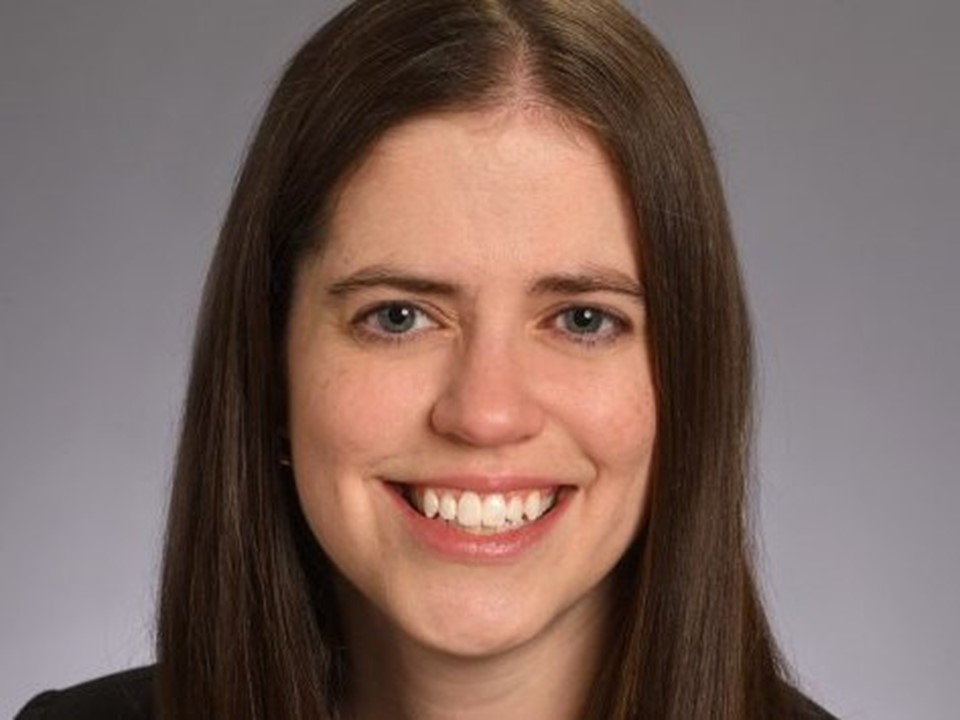COVID-19 Prevention Measures Advocated by Georgia CTSA MSCR Grad

"One of the things we will take away from this pandemic is the enhanced focus on infection prevention - washing our hands, not touching our face, and not going to work when we're sick. All of those things should always be practiced," says Dr. Marybeth Sexton.
Marybeth Sexton, MD, MSc, Assistant Professor, Emory University School of Medicine, member of the Serious Communicable Disease Unit team at Emory University Hospital and Georgia Clinical & Translational Science Alliance (Georgia CTSA) Master in Science in Clinical Research (MSCR) graduate, has been actively sharing COVID-19 prevention and protective strategies to limit the spread of COVID-19. Her current focus is on communicating the importance of social distancing during the pandemic.
On January 24, 2020, only four days after the first known case of COVID-19 in the U.S. was confirmed, Dr. Sexton began communicating COVID-19 protection and prevention measures to hospital staff, patients, and the community through media outlets locally and across the United States including ABC News, The Atlanta Journal-Constitution, CNBC, CNN, Georgia Public Broadcasting, NPR, Time, The Washington Post, WBHM-FM, The Weather Channel, WebMD, and WXIA-TV.
"Pre-COVID, I was running the antibiotic stewardship program at Emory University Hospital and working as the assistant hospital epidemiologist. I'm also the epidemiologist for our ambulatory sites and work with our infection prevention and control department. We have a fantastic group of infection preventionists who work throughout the hospitals and the clinic that I partner with closely. As part of that work, I've been interested in healthcare preparedness across a system with several hospitals that serve different patient populations and many ambulatory sites including clinics and surgical centers," comments Dr. Sexton.
"When it became clear we might see COVID cases in late January or early February, I co-chaired a committee to look at our preparedness efforts. This ultimately fed into the incident command center across Emory Healthcare when we realized we weren't just going to see a few cases but were going to see numerous cases in the state of Georgia. I now co-chair Emory's care model committee that collaborates with other committees in incident command to review clinical and safety issues that impact our staff and patients," remarks Sexton. "We have worked on issues including how to educate our staff about their personal protective equipment, how to prioritize outpatient testing, and how to coordinate with palliative care and infection prevention to confirm COVID patients at the end of life can have family members visit safely. I also work on an infectious disease committee with the other hospital epidemiologists, where we have developed plans for when a patient with COVID is ready to be off isolation precautions in the hospital, and when someone who had COVID can go back to their regular doctor."
"One of the most challenging things about this pandemic is that we have to act on the information we have, which is changing rapidly, and then figure out what is the absolute best and safest thing we can do for our staff and our patients. And then if what we are doing changes, we communicate it so people are aware of what we're doing, why we're doing it, and what the best evidence is that we have to support the changes," adds Sexton. "We are using a combination of the evidence we know about similar viruses, what we learned from SARS, MERS, and seasonal coronaviruses, and what are we seeing happen in the other countries that are ahead of us on some of these curves. Then we review what our best clinical and practical judgment guides us to do."
"The analytical skills I gained through the Georgia CTSA MSCR Program helped prepare me to respond to COVID-19. I'm able to more thoroughly evaluate the information and research that's being presented. With this new disease, there's a rush to publish research papers with variable quality, or studies that are well-done but may not have a lot of clinical relevance. The program was also helpful from a communications perspective because we learned to break down the complicated scientific material so that everyone could understand it - which was good training for this kind of response. Additionally, I have collaborated with several of my MSCR classmates from a wide array of specialties in the COVID response. The MSCR Program provided a good introduction to people in many areas, and we're now working together again to make the best decisions to keep our staff, patients, and community safe."
The Emory Master of Science in Clinical Research (MSCR) degree program, in the Laney Graduate School at Emory University, provides innovative didactic and mentored research training to those interested in pursuing a career in clinical and/or translational research. The MSCR degree is designed for predoctoral, postdoctoral trainees, and junior faculty from Emory, Morehouse School of Medicine, Georgia Tech and UGA.
The Georgia CTSA is a statewide partnership between Emory, MSM, Georgia Tech, and UGA and is one of over 60 in a national consortium striving to improve the way biomedical research is conducted across the country. The consortium, funded through the National Center for Advancing Translational Sciences (NCATS) and the National Institutes of Health's Clinical and Translational Science Awards, shares a common vision to translate laboratory discoveries into treatments for patients, engage communities in clinical research efforts, and train the next generation of clinical investigators. For more information, visit GeorgiaCTSA.org.